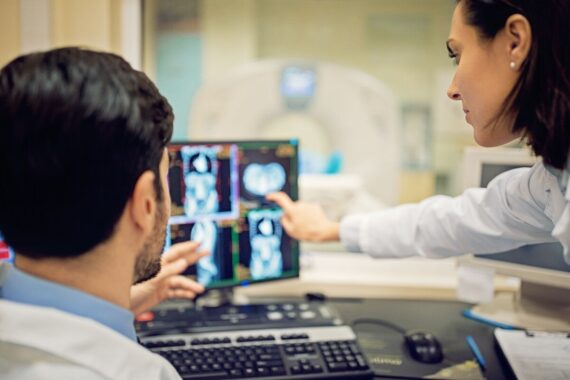A lack of support for GP practices amid the huge pressures they are facing is ‘inhibiting’ the early diagnosis of cancer, leading MPs have said.
They recommended that the threshold for investigations should be lowered so that GPs can ‘better manage patients with a cancer risk in primary care’.
A House of Commons Health and Social Care Committee report on cancer services, published today, said that ‘aspects of the current model of general practice’ are hindering early cancer diagnosis, such as ‘new models of triage’.
Concerns about the lack of face-to-face GP appointments were raised in evidence sessions and the report said it remains unclear ‘to what extent possible signs and symptoms of cancer are being effectively prioritised in new models of triage being utilised in general practice’.
But the report also pointed to the demands on general practice, as well as its relationship to the whole NHS, saying these make it more likely cancers will be missed.
It said: ‘We are keenly aware of the pressures facing GPs, who are the lynchpin of the NHS, but it is clear that aspects of the current model of general practice, as well as the level of support provided to the service, inhibit the early diagnosis of cancer.’
The committee called for GPs to have better direct access to tests, such as CT scans, to help them manage high-risk patients.
The report said: ‘Increasing direct access to tests for GPs would allow GPs to order tests directly and therefore better manage patients with a cancer risk in primary care, lowering the threshold for investigations.’
The report also found:
- Of the more than 60% cancers diagnosed following GP referral, 39% are urgent referrals for suspected cancer and 23% are ‘routine referrals for investigation which lead to a cancer diagnosis’, in addition to ‘a smaller proportion diagnosed following GP referrals to emergency departments’.
- Without action, 343,000 people between 2019 and 2028 will not get an early cancer diagnosis.
Health and Social Care Committee chair Jeremy Hunt said: ‘Earlier cancer diagnosis is the key to improving overall survival rates however progress is being jeopardised by staff shortages which threaten both diagnosis and treatment.
‘We do not believe that the NHS is on track to meet the Government’s target on early cancer diagnosis by 2028, reinforced by our Expert Panel’s rating that progress against this target is inadequate.
‘We are further concerned at the damaging and prolonged impact of the pandemic on cancer services with a real risk that gains made in cancer survival will go into reverse.’
In evidence given to the committee, the RCGP’s clinical adviser for cancer Dr Richard Roope said GPs ‘are there to help our patients and to enable access to the best diagnostics and treatments in a timely fashion’ and reinforced that ‘no GP gets up in the morning to miss a diagnosis’.
Pulse October survey
Take our July 2025 survey to potentially win £1.000 worth of tokens















Patient called today from Gibraltar. She wanted a prescription sent there. Then argued why it couldn’t happen.
——– and that “leaders” is the current state of affairs.
Just quick heads up to MP
Sometimes referred to A/E as most appropriate place: oxygen % <90 and chest infection secondary to acute leukaemia on his first presentation to GP F2F
NICE PPV is 3% can’t set bar much lower than that??